Displacement is a powerful graphic novel about the history of the United States when Japanese-Americans were forcibly place in internment camps. As a story, this period of time has many earnest and worthwhile stories that can be told. They Called Us Enemy by George Takei, Justin Elsinger, Steven Scott and illustrations by Harmony Becker tells the same story, but from a different perspective. The perspective in Displacement is unique in the fact that the main reason for the story to be is due to the lead character, Kiku and her ability to jump through time.
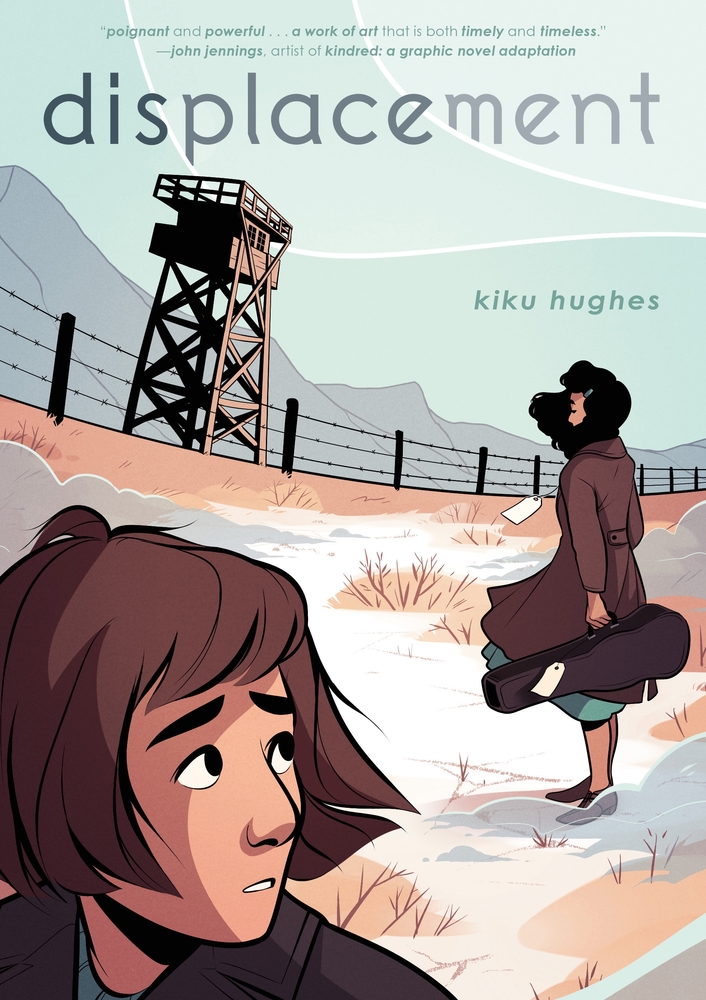
Displacement, by Kiku Hughes weaves in time travel elements (thus the title), plus historical and biographical stories that were relayed to her from her grandmother. In the graphic novel Kiku is a typical uninterested teen who is morphed back in time to 1942 from today’s modern times. It’s very brief at first, just providing her a glimpse of the past when Japanese citizens in the United States were sent to internment camps during World War II. She’s in a line with many other Americans of Japanese descent when she falls and skins her knee.
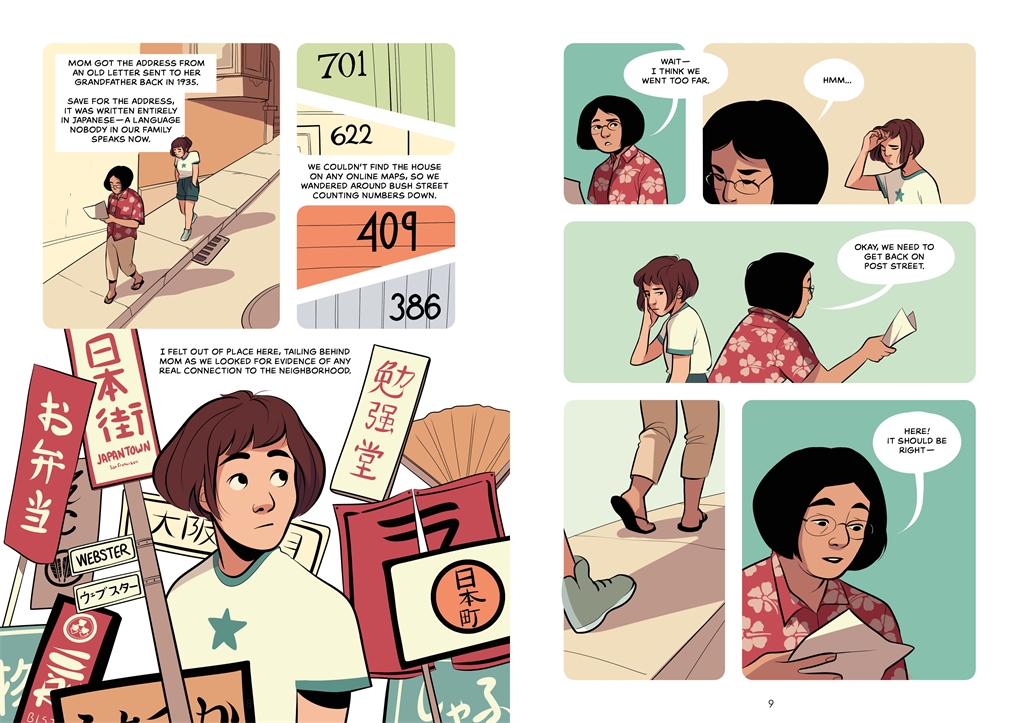
Suddenly, she finds herself back in today’s timeline. She touches her knee, feels the blood and realizes that her trip back in time was real and not just a fantasy. The time jumps aren’t controllable; they start with a foggy haze around her and dissipate just as quickly. They also haven’t last too long, until the third jump when she finds herself fully ensconced in the early years of WWII and heading to a Japanese-American internment camp.
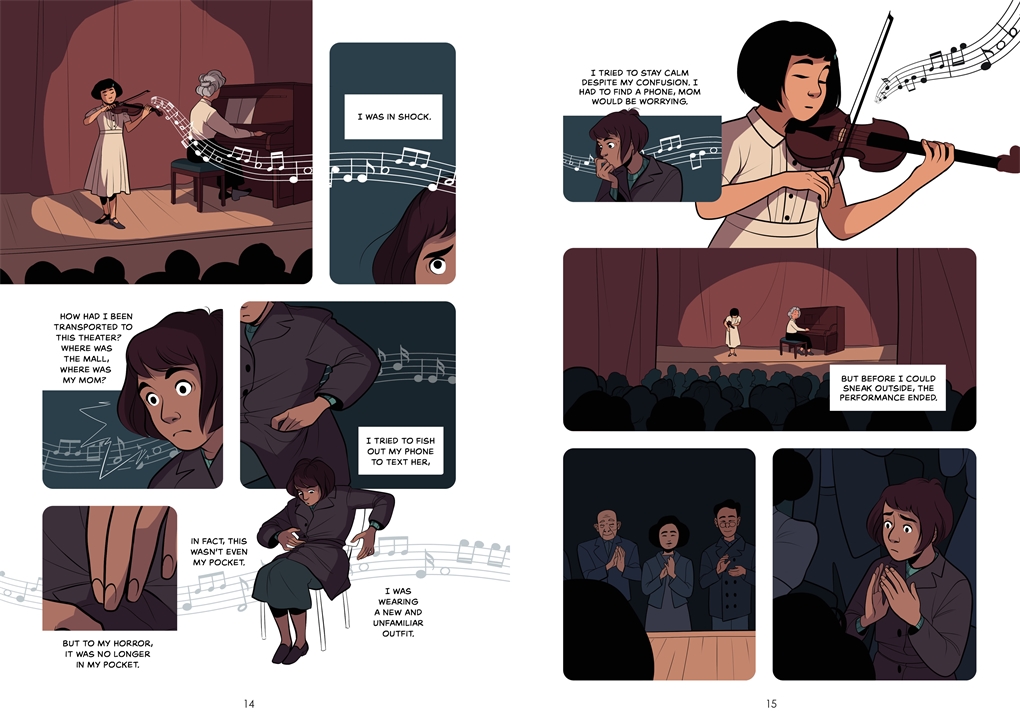
Here she meets a variety of people whose emotions realistically reflect what people would think. Some people are open to going along with the camps because they know they haven’t done anything wrong. Other people haven’t done anything wrong and are frustrated or angry about being considered traitors to their country. Kiku quickly notices her grandmother, who was almost out of her teens at that time, and her family.
As their time in the camp gets longer people start to lose patience. There are rumors about people being killed as they try to escape. They’re being treated like criminals and their culture is being grouped in with those attacking the country. All the while, Kiku gets physically closer to her grandmother in hopes of learning just a little bit more about her. Kiku manages to make the best of it in the camp, but the realities of being in a prison weigh on everyone there.
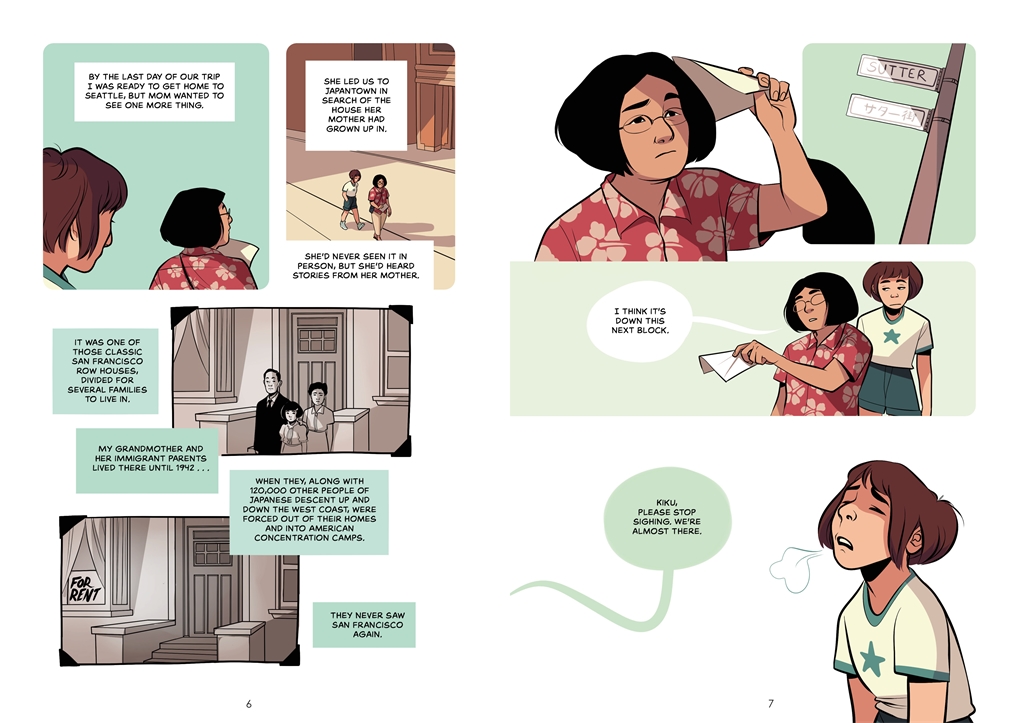
During Kiku’s grandmother’s graduation she plays a lovely sonata on the violin. Kiku is just about to tap her on the shoulder when she makes a sudden leap to the future. Back in today’s world, her mother asks Kiku what’s wrong and she finally confides in her that she can travel through time. To her surprise, Kiku learns that she can do it too and the two of them go back to see her mother play at a recital and to when she was dropping off Kiku’s mother at college. The two of them come back to today’s world with new respect for her grandmother and with Kiku having a stronger vigor in speaking out against injustice where she sees them.
Displacement is a good graphic novel that could’ve been great. The time travel element is a clever way to bridge the story, but it feels too much like an episode of Quantum Leap. The book has its strongest story elements when Kiku is back in time at the camp. It’s the drama and story of that period that make the book shine. The time travel element isn’t played frivolously, it’s just that it feels unnatural when it’s juxtaposed with the rest of the story. Part of that is because the internment camps left such a blight on the United States that it feels like they deserve a more thorough and serious dive into the story.
As a graphic novel it does a good job at introducing readers to the story, but the subject matter is worthy of a more concentrated look. Displacement is by Kiku Hughes and on :01 First Second Books. The content and theme of the book is appropriate for middle school readers and up.
There are affiliate links in this post.
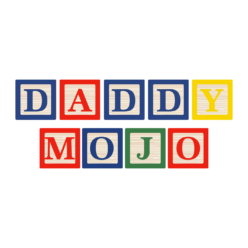
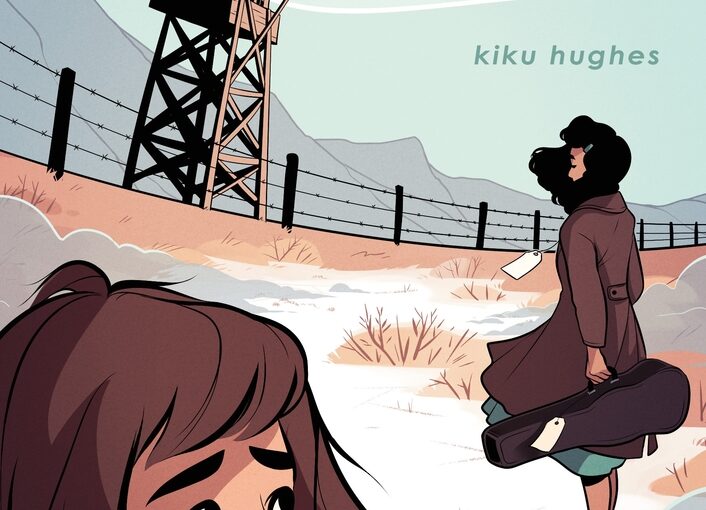



 Facebook
Facebook Twitter
Twitter Flickr
Flickr GooglePlus
GooglePlus Youtube
Youtube